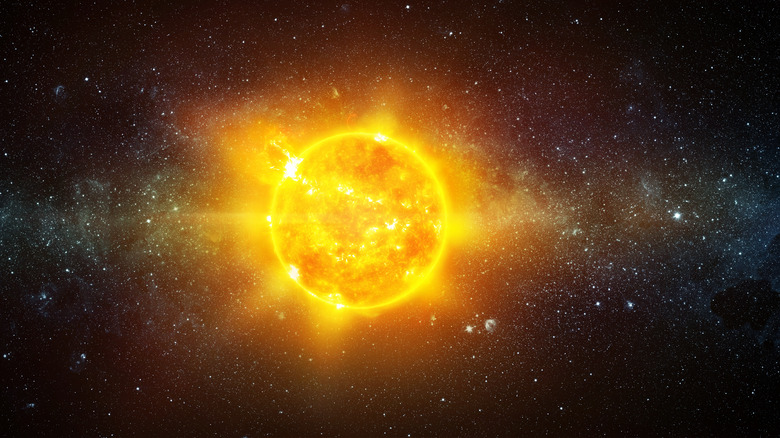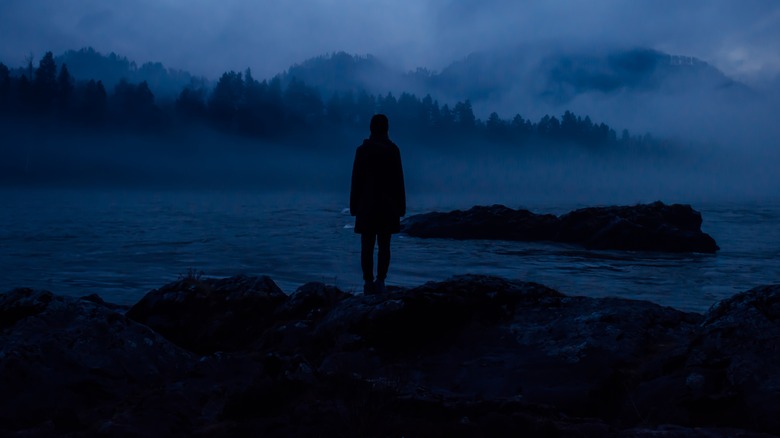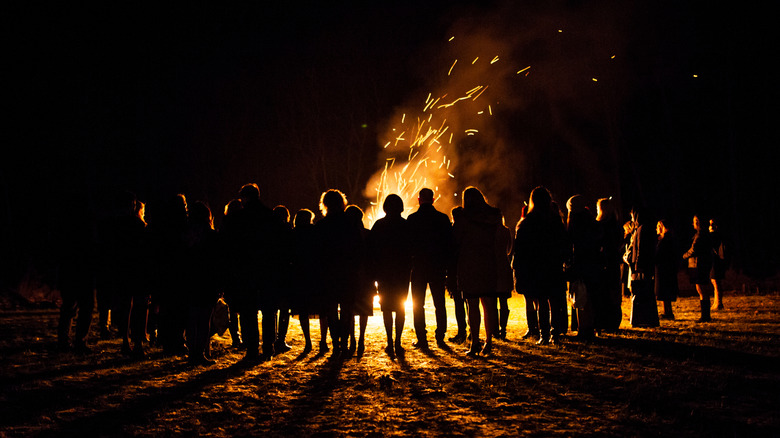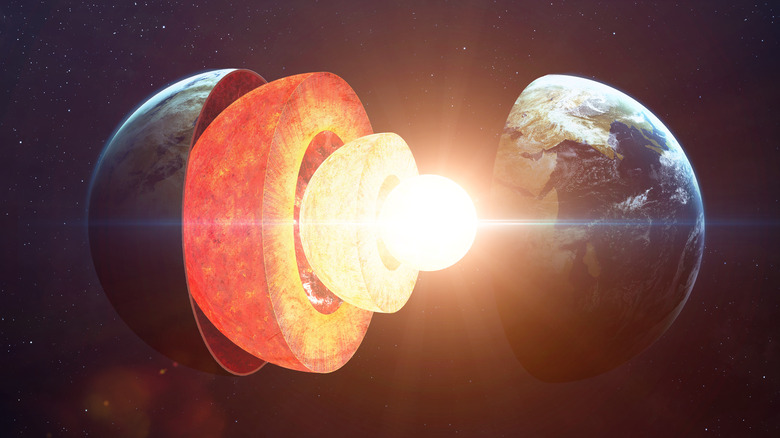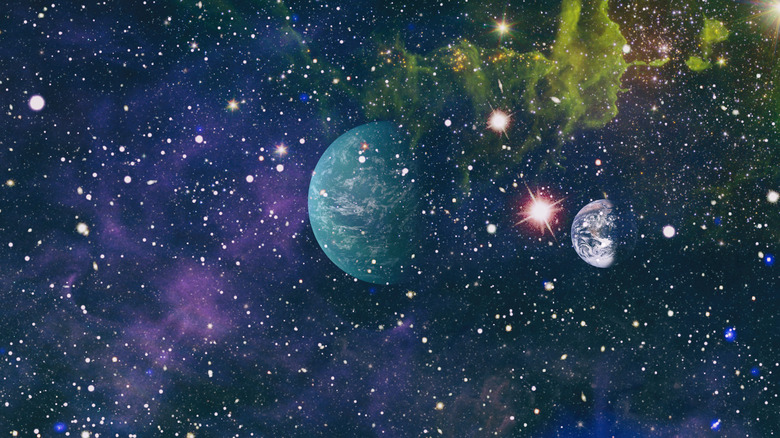What Would Happen To The Earth If The Sun Went Cold For A Week?
Of all of the doomsday scenarios out there, one of the most frightening is some kind of disaster involving our sun. From coronal mass ejections taking out the power grid to the sun becoming so bright it would scorch everything on the Earth's surface, there's a lot that could happen (via ScienceAlert).
The Earth is about 93 million miles away from the sun (per Space), and while that is an almost unfathomable distance, whatever happens on the sun would take some time to reach the Earth. For example, it would probably take a few days to feel the effects of a solar storm, per EarthSky. But what would happen if the sun went cold and decided to take a break for a week? For starters, it would take us about eight minutes to realize anything was wrong since it takes that much time for sunlight to reach the Earth, according to Discovery. After that, changes would rapidly begin.
Things would go dark
Unsurprisingly, the Earth wouldn't go completely dark after those first eight minutes. The sky would definitely be dark, but we could still see a pale light reflecting from other planets in the sky. This faint glow would last for about an hour, and after that, the sky would eventually darken. We wouldn't see the moon anymore because it also reflects the sun's light (via Discovery). But we would still see distant stars in the sky, so the heavens wouldn't be pitch black, according to Insider.
But that doesn't mean things wouldn't be headed for trouble. Perhaps the greatest difficulty we would face with eternal darkness would be the lack of photosynthesis. Most plants — especially the smaller ones — would begin to die within those first few days of no sun. Strangely, some of the larger trees on Earth could survive for decades without sunlight because they have slower metabolisms and large reserves of energy (via Discovery).
The Earth would get cold
If it the sun went cold and dark, temperatures on Earth would drop. But they wouldn't plummet right away. It would take about a week for the Earth's temperature to drop to around 32 degrees. And, looking even longer-term, it would drop to around minus 150 degrees within a year, per Insider.
The plants that could live without sunlight would struggle to survive at these temperatures, but there would be other things to worry about at that point. For one thing, water sources would freeze. Fresh water sources freeze at 32 degrees, and the oceans would freeze at 28.4 degrees, according to the National Oceanic and Atmospheric Administration. Smaller rivers and lakes might begin to ice over within seven days, but because of the Earth's hot core, it would take thousands of years for oceans to freeze completely.
We'd still have energy from fossil fuels
We'd still be able to use energy from fossil fuels without the sun. Coal, oil, and natural gas would still be available. Coal is made from the decomposing remains of plants and animals, and oil comes from sediment found between rock layers. Natural gas is usually found above oil deposits (via National Geographic). The Earth might be dark and cold without a sun, but humanity would have fuel and electricity — at least for a little while.
According to ScienceDirect, the Earth has enough reserves of coal to last around 107 years and enough oil and natural gas for 25 and 37 years, respectively. So, for a week, humanity might be okay. However, it's worth noting that we might burn through those reserves much faster trying to stay warm at lower-than-normal temperatures. Needless to say, running out of fossil fuels would be the beginning of the end.
Any longer without the sun would be catastrophic
Humanity could probably recover from being without the sun for a week. Long-term, the human species might survive without a sun, but it would take lots of foresight and planning. The tiny organisms in the Earth's crust would survive longer because they are closer to its core, which would theoretically still be hot even if the sun went cold. In fact, experts propose that the Earth's core is around 11,000 degrees, which is hotter than the sun, per Phys.org.
Based on that information and the technology that Iceland uses to heat homes, humans might stand a chance of survival by harnessing the power of the Earth's core through geothermal or nuclear power. Or perhaps humans could live in submarines close to the ocean bottom, according to Popular Science. Of course, there would be other issues to tackle, such as oxygen, fresh water, and food (via Science Focus).
The Earth might lose its place in the solar system
The sun not working — even for just a few days — presents a number of perilous possibilities. If it simply stopped producing heat and light, things in our solar system would be okay (sort of). However, if the sun stopped working altogether and lost its mass (which is impossible), things would get much worse on Earth. This is because of our good friend, gravity (via NASA).
If the sun lost its mass, the planets would start moving chaotically, and more than likely, things would get bumpy. In fact, it wouldn't be a surprise if planets collided with one another, creating new, larger planets. If the Earth managed to avoid getting hit by another planet, it would probably be drawn to the gravitational force of larger heavenly bodies nearby, according to New Scientist. Another theory involves the Earth drifting through space, and if it were lucky enough to dodge other planets, asteroids, and comets, it would eventually make its way to the nearest star, Alpha Centauri, in about 43,000 years, per Insider.
